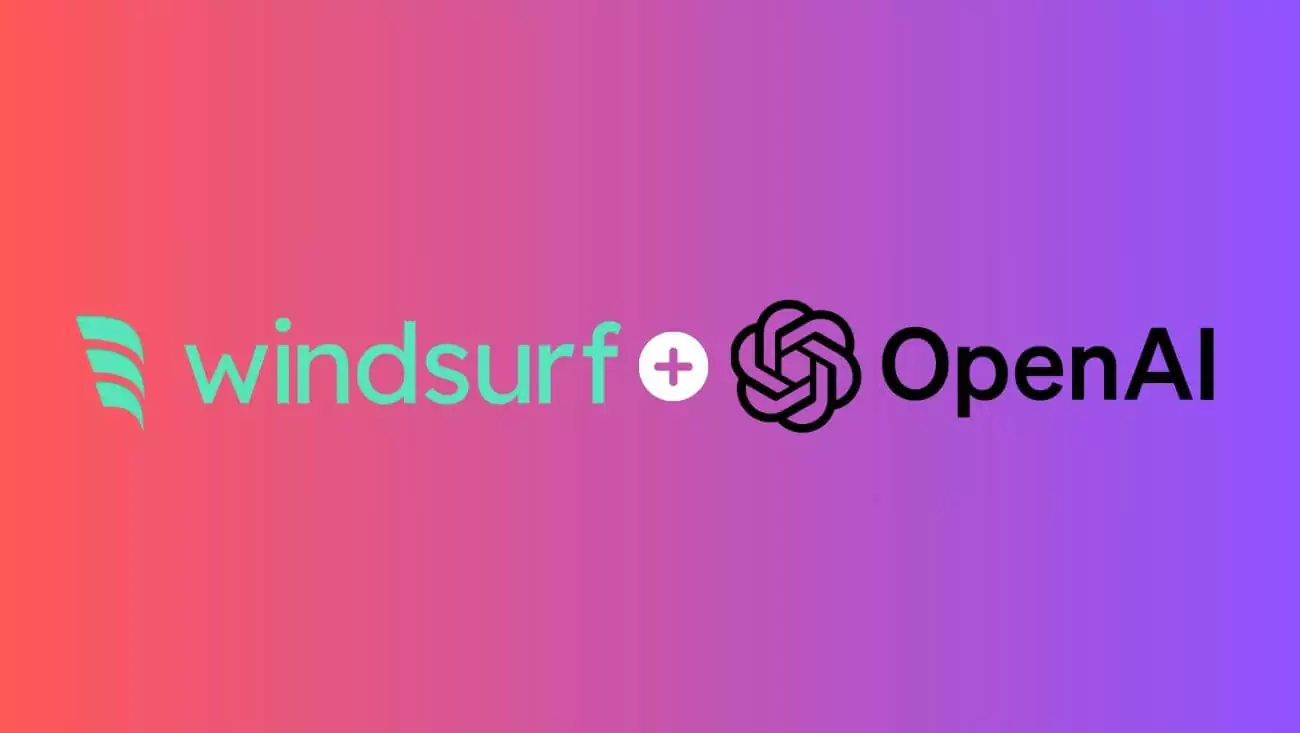OpenAI has taken a major step to strengthen its position in the AI coding market with the acquisition of Windsurf, a startup specializing in AI-assisted coding tools, for approximately $3 billion. Announced on May 6, 2025, this deal marks OpenAI’s largest acquisition to date and aims to enhance the coding capabilities of its flagship product, ChatGPT, amidst growing competition in the AI innovation space. Windsurf’s advanced features, previously known under the brand Codeium, are expected to elevate OpenAI’s offerings for developers and enterprises, further cementing its dominance in the tech ecosystem.
Windsurf, founded in 2022, has made a name for itself with its AI-powered coding assistant, which offers features like autocompletion, in-editor commands, and a standout “Write Mode” that allows developers to generate and edit files directly from prompts. The startup had raised $150 million in a funding round led by General Catalyst in August 2024, valuing it at $1.25 billion. By early 2025, Windsurf was reportedly in discussions for another funding round at a $3 billion valuation, reflecting its rapid growth and appeal in the developer community. OpenAI’s acquisition aligns with its strategy to expand its enterprise capabilities, following its 2024 purchase of Rockset, a search and database analytics startup that bolstered its infrastructure for corporate clients.
The integration of Windsurf’s technology is poised to significantly enhance ChatGPT’s coding functionality, an area where OpenAI has been making steady improvements with models like GPT-4 and GPT-4.5. ChatGPT currently competes with tools like GitHub Copilot and Cursor, but Windsurf brings unique strengths to the table, including a seamless UI, faster performance, and a focus on user privacy. Its “Write Mode” feature, for example, could enable ChatGPT to assist with more complex coding tasks, such as generating entire scripts or modules from natural language prompts. Additionally, Windsurf’s privacy-first approach—offering encryption and zero-day data retention—addresses growing concerns about data security in AI tools, making it an attractive addition for enterprise users wary of competitors like Cursor or GitHub Copilot.
OpenAI’s acquisition of Windsurf comes at a time of both opportunity and challenge for the company. In October 2024, OpenAI raised $6.6 billion in a funding round, valuing it at $157 billion, with investments from Microsoft, Nvidia, and SoftBank. This financial boost has fueled its aggressive expansion strategy, including high-profile acquisitions like Windsurf. However, OpenAI has also faced internal turbulence, with the departure of CTO Mira Murati in September 2024 and legal battles with Elon Musk, who has accused the company of straying from its nonprofit roots. Despite these challenges, OpenAI remains focused on advancing its AI capabilities, with Windsurf expected to play a pivotal role in its enterprise growth.
For Windsurf, the acquisition marks a significant transition from a fast-growing startup to a key component of OpenAI’s ecosystem. Built on the foundation of VS Code, Windsurf offers developers a familiar and efficient experience, with features like faster performance and support for favorite plugins and extensions. Its privacy-focused design, which avoids training on non-permissive data, has made it a preferred choice for developers concerned about data misuse by AI tools. By joining OpenAI, Windsurf’s technology could reach a global audience, potentially accelerating the adoption of AI-driven coding solutions across industries, from software development to educational tools.
The $3 billion acquisition reflects a broader trend of consolidation in the AI sector, where major players are acquiring specialized startups to enhance their portfolios. The AI coding market has seen intense competition, with tools like Google’s Bard and Microsoft’s Copilot vying for dominance alongside ChatGPT. While the deal has been praised as a strategic move to keep OpenAI ahead of the curve, some analysts have questioned whether Windsurf’s $3 billion valuation is justified, given its relatively short history. Others argue that the acquisition is a forward-looking investment, as the demand for AI-assisted coding tools continues to grow, driven by the need for faster, more efficient software development in an increasingly digital world.
The integration of Windsurf into OpenAI’s ecosystem could bring significant benefits for developers and enterprises alike. For developers, the combination of Windsurf’s intuitive features with ChatGPT’s natural language processing could streamline coding workflows, making it easier to tackle complex projects. For enterprises, the enhanced capabilities could improve software development pipelines, particularly for companies building AI-driven applications or automating processes. However, challenges lie ahead, including ensuring seamless compatibility between Windsurf’s technology and OpenAI’s existing models, as well as navigating potential regulatory scrutiny over data privacy and market competition in the AI space.
OpenAI’s acquisition of Windsurf underscores its ambition to lead the AI revolution across multiple domains, from natural language processing to coding. As the company continues to expand its offerings, the tech community will be watching closely to see how this deal shapes the future of AI-assisted development. What are your thoughts on OpenAI’s acquisition of Windsurf, and how might it impact the way you or your organization use AI coding tools? Share your perspective in the comments—we’d love to hear your insights on this significant development.







